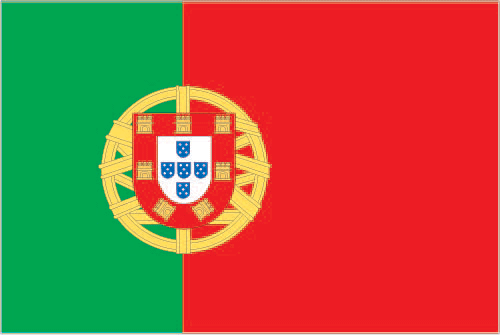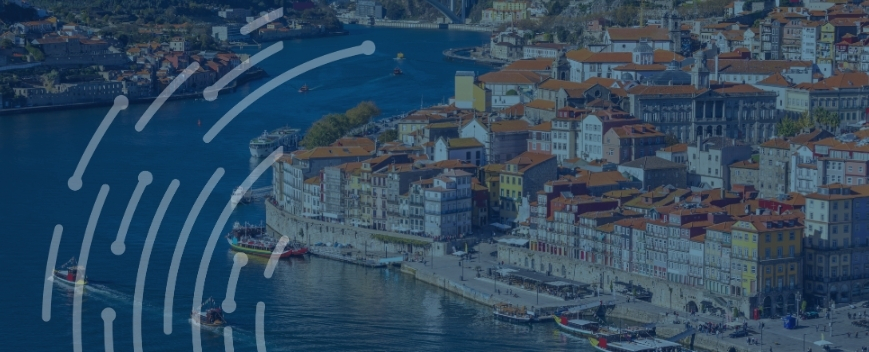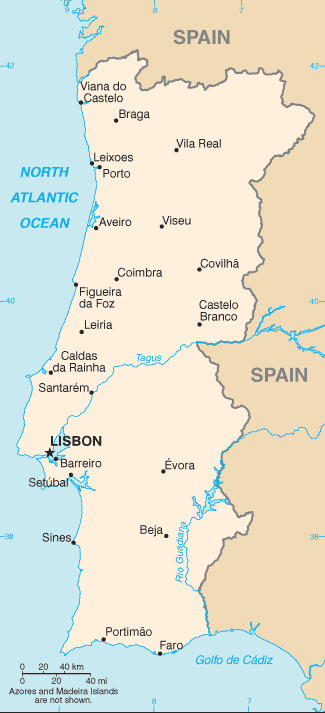Importing from Portugal


L
Portugal Country Profile
Official Name (Local Language) Republica Portuguesa
Capital Lisbon
Population 10,833,816
Currency Euro
GDP $205.9 billion
Languages Portuguese; Mirandese
Phone Dial In 351
Portugal Exports Profile
Exports ($m USD) 62,170
Number of Export Products 4,217
Number of Export Partners 211

Portugal Economic Statistics
Government Website | https://www.portugal.gov.pt/ |
| Sovereign Ratings | https://countryeconomy.com/ratings/portugal |
| Central Bank | Banco de Portugal |
| Currency USD Exchange Rate | 0.9214 |
| Unemployment Rate | 10.2% |
| Population below poverty line | 19% |
| Inflation Rate | 0.8% |
| Prime Lending Rate | 0% |
| GDP | $205.9 billion |
| GDP Pro Capita (PPP) | $28,500 |
| Currency Name | Euro |
| Currency Code | EUR |
| World Bank Classification | High Income |
| Competitive Industrial Performance | 46/138 |
| Corruption Perceptions Index | 29/180 |
| Ease of Doing Business | 34/190 |
| Enabling Trade Index | 28/136 |
Access trade, receivables and supply chain finance
We assist companies to access trade and receivables finance through our relationships with 270+ banks, funds and alternative finance houses.
Get StartedImporting from Portugal
Portugal’s largest exports are cars, motor vehicle parts, and clothing goods. Additionally, Portugal is the world’s largest exporter of corks (more than €1 billion annually). The primary export partners of Portugal are Spain, Italy, France and Germany. Portugal is the 43th largest exporter in the world and the 47th largest economy in the world.
Importing from Portugal: What is trade finance?
Trade finance is a revolving facility in which lenders offer financing options – it enables businesses to purchase products and can help ease the pressure from working capital issues.
Generally, an export finance bank will fund up to 100% of the cost of the products, including charges (e.g. insurance costs).
Trade finance offers upsides over more traditional bank financing, for example bridging mortgages or loans. Trade finance provides quick funding without affecting existing bank relationships.
How does it work?
If you’re a business importing or exporting goods around the world, then a trade finance facility would assist your company through offering a letter of credit (LC) or some form of cash advance.
I’m looking to import from Portugal, how can Trade Finance Global help, and how does it work?
If you’re looking to import inventory from other countries, you may require import finance, which is an agreement between yourself (the importer) and the foreign exporter. A non-bank lender will act as the intermediary, paying the foreign exporter on your behalf until you get the products and have then sold them to your buyer. Repaying the financier then occurs over an agreed period of time.
Chart Showing GDP Growth Compared to rest of world
GDP Composition for Portugal
Agriculture
2.4%
Grain, potatoes, tomatoes, olives, grapes; sheep, cattle, goats, pigs, poultry, dairy products; fish
Industry
21.9%
Textiles, clothing, footwear, wood and cork, paper and pulp, chemicals, fuels and lubricants, automobiles and auto parts, base metals, minerals, porcelain and ceramics, glassware, technology, telecommunications; dairy products, wine, other foodstuffs
Services
75.9%
Travel Transportation Other business services Computer and information services Communications services Construction services Financial services Cultural and recreational services Government services Insurance services Royalties and license fees
Map
Top 5 Exports Partners
| Country | Trade | % Partner Share |
| Spain | 15,670 | 25.21 |
| France | 7,777 | 12.51 |
| Germany | 7,041 | 11.33 |
| United Kingdom | 4,117 | 6.62 |
| United States | 3,213 | 5.17 |
Top 5 Exports Products
| Export Product | Number |
| Petroleum oils, etc, (excl. crude); preparation | 6.1% |
| Paper… (excl. mechanical fibres), weighing >= | 5.0% |
| Automobiles with diesel engine displacing more | 3.9% |
| Motor vehicle parts nes | 3.1% |
| New pneumatic tyres, of rubber of a kind used o | 2.2% |
Local Partners
- All Topics
- Philippines Trade Resources
- Export Finance and ECA Topics
- Local Conferences



















